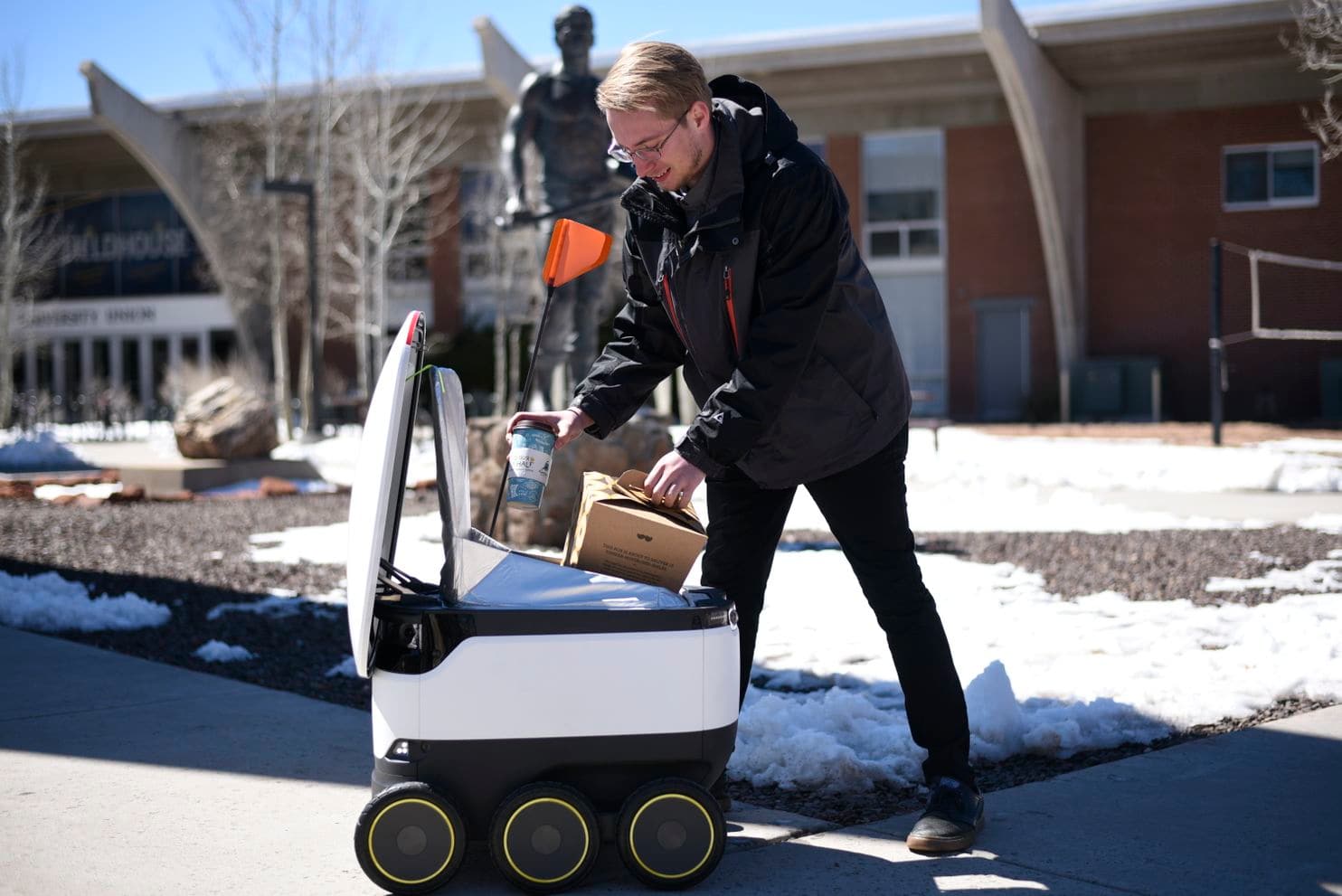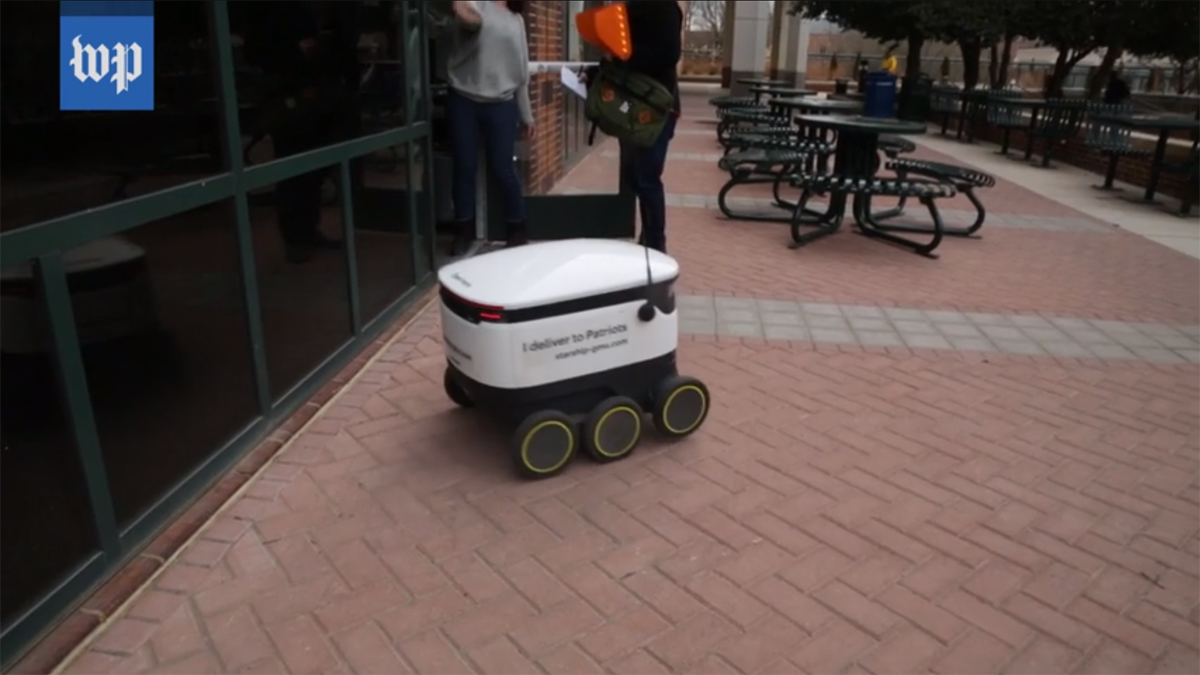How the delivery robot changed the culinary habits of American students

Two months ago, at the end of January, testing of Starship Technologies robots at George Mason University in Virginia began. University management has allowed the company to deploy on the campus its 25 devices configured to deliver orders from the largest local fast foods and restaurants, including Blaze Pizza, Starbucks and Dunkin 'Donuts. Few expected that the machines would be capable of seriously affecting them, they were presented as an amusing novelty and local entertainment, with which you can take pictures.
But the other day there were first data on the real work of these robots. The most interesting thing: the number of purchased breakfasts from networks has increased. Cars autonomously delivered an additional 1,500 orders.
On Monday, Starship Technologies said in a press release:
Studies have shown that up to 88% of college students miss breakfast - mainly due to lack of time. But when robots arrive on campus, this behavior begins to change.
A similar effect is observed in the corporate environment. The number of breakfast ordered with the advent of robots increases.

Perhaps people have no particular desire to communicate with the courier early in the morning. Or they don't want to drive an unhappy person in the morning. And if they know that the robot will arrive, psychological barriers are removed. Also inside the app you can see exactly where your breakfast is going, and you can plan your next few minutes around it.
In the first days after the appearance of delivery trucks at the university, they mainly ordered meals through them. Moreover, there were so many orders that representatives of the university were forced to ban the use of robots for several days, because 25 machines could not cope and they had to work until late at night.
After 2 months, the demand is more or less balanced. "Bust" is observed in the morning, but the application itself now reports that, excuse me, the order cannot be accepted. Starship Technologies explains this popularity of their robots during breakfast by the lack of time among students:
Breakfast is very easy to miss. You run, you pair up, you try to get dressed, put on your shoes. And you do not want to get out of bed early after a night of "study." Our robots allow breakfast to come to you, exactly the minute you need it.
Robots also provide campus members with useful information about the culinary habits of students: where they mostly prefer to eat, how much their average order is worth, and so on. The university says that it is not going to monetize such data, but will use it to change the way students are served in their own canteens.

')
Campus users pay $ 1.99 for using the services of Starship Technologies (which is cheaper than choosing a courier and can be automatically charged from their meal plan). Campus is also profitable: it receives a small percentage of food sales. More orders - more money for the university.
Cars carry up to 9 kg (the company says, this is the equivalent of three bags of food) on the territory of 330 hectares. Delivery time - no more than 15 minutes. Each robot is responsible for its section. Most ride from restaurants to hostels, but some “cross over” students on the way to the classroom. Driving speeds are up to 7 km / h to make them safe for pedestrians.
In its release, the company recognized the experiment as successful, and is now going to repeat it in other universities. Next in line is the campus of the University of Northern Arizona. Thirty Starship Technologies robots will launch there this week.

Source: https://habr.com/ru/post/445814/
All Articles